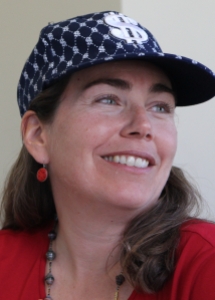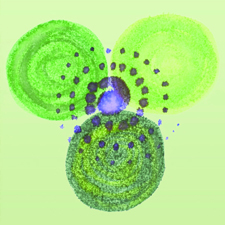 My favorite part of the Academy Awards is the thank you speeches.* I love watching someone take the stage amid cheers, take a deep breath and say a big grateful wow to all the work, support, energy and heart that led to that moment.
My favorite part of the Academy Awards is the thank you speeches.* I love watching someone take the stage amid cheers, take a deep breath and say a big grateful wow to all the work, support, energy and heart that led to that moment.
I’m not sure I’ll ever be on an awards show, but I think now, more than ever, I need to pause and give a big grateful wow.
Our world seems to be rocking and rolling and groaning. Fear spreads like wildfire across the surface of our globe and narrow bricks wobble beneath our economic towers of Babel. But there are deeper truths and wider foundations.
And the way to find them is through gratitude.
So here’s my acceptance speech, my list of thank yous and a big, grateful wow:
* I am grateful for the perspective of the horizon, that bigger picture that contains the close up details of each day. When the rocking and rolling and groaning of the world around me get loud and crazy, I can raise my eyes to the place where heaven meets earth and remember the long term view: generations in the future who will reap the harvest I help plant today; the mystery of Spirit that transcends and infuses everything; the new sprouts that grow even as the old crumbles.
* Unable to see the path ahead on this journey of life, I am grateful for my growing courage and tr
ust to take that next step. Mary Jo Leddy’s poem sings in my heart:
“We walk on the waters of gratitude
knowing there is nothing there
trusting there will be enough
to go on.” **

* I am grateful for this flesh and blood and bone body that I was given at birth. She carries me through every day. When I slow down to notice, I feel the tingle in my feet when I am grounded, a cloud of confusion when something smells “off” and I need to pay close attention to what is happening around me or a tickle on the top of my head when something feels right on. My wise body has much to tell me every time I stop to listen.
* I am grateful for paradoxes that meet me at every turn, and keep showing up even when I fight them. Paradoxes like living personally and globally at the same time or my conflict about putting my book in an online bookstore while supporting independent bookstores (as I spoke about in this blog).
* I am deeply grateful for every one of you and to others around this globe. We were born to be in community, to work together across our diversity. When each of us contributes, we have everything we need for equity, justice, joy and creativity.
* I am grateful for my partnership with Harvest Time , Be Present, Inc. and Community Wholeness Venture where I have both received and given in one smooth, continuous motion. And for Khara Scott-Bey, illustrator for Big Topics at Midnight and the drawing above. Her creativity invites me to delight and ponder. Working together with partners like these gives me great hope for the world.
So there’s my list. If you’re in the mood to share, I’d love to read yours.
Now is the time to celebrate how far we’ve journeyed, to fan the flames of creativity and joy that fuel our sight and work, to drop to our knees with a big grateful wow, knowing, as Rumi wrote, “There are a thousand ways to kneel and kiss the ground.’”
Blessings to each of you as the light of 2013 fades to a close and soon gives way to the dawn of a new year.
*This was a newsletter I wrote last month. As the year nears its end, I find that gratitude fills my heart. I am posting it here for those who missed it in the avalanche of emails that filled our inboxes just after Thanksgiving.
**Leddy, Mary Jo, Radical Gratitude (New York: Orbis Books, 2002) pg 38







